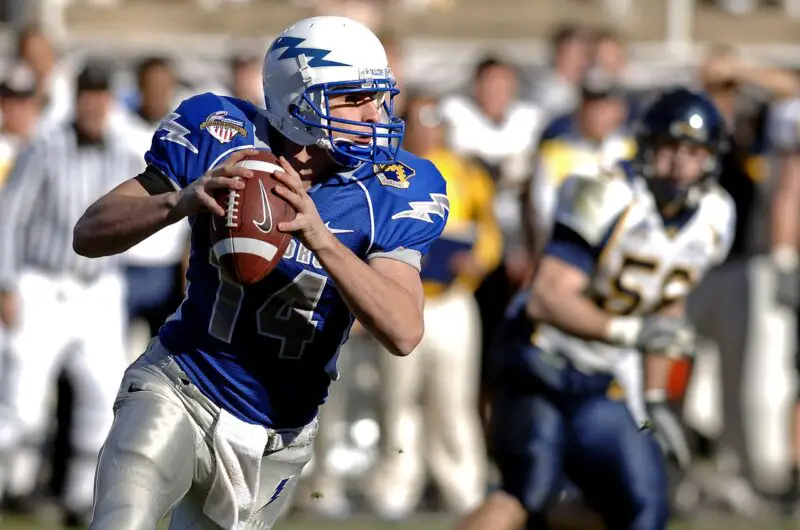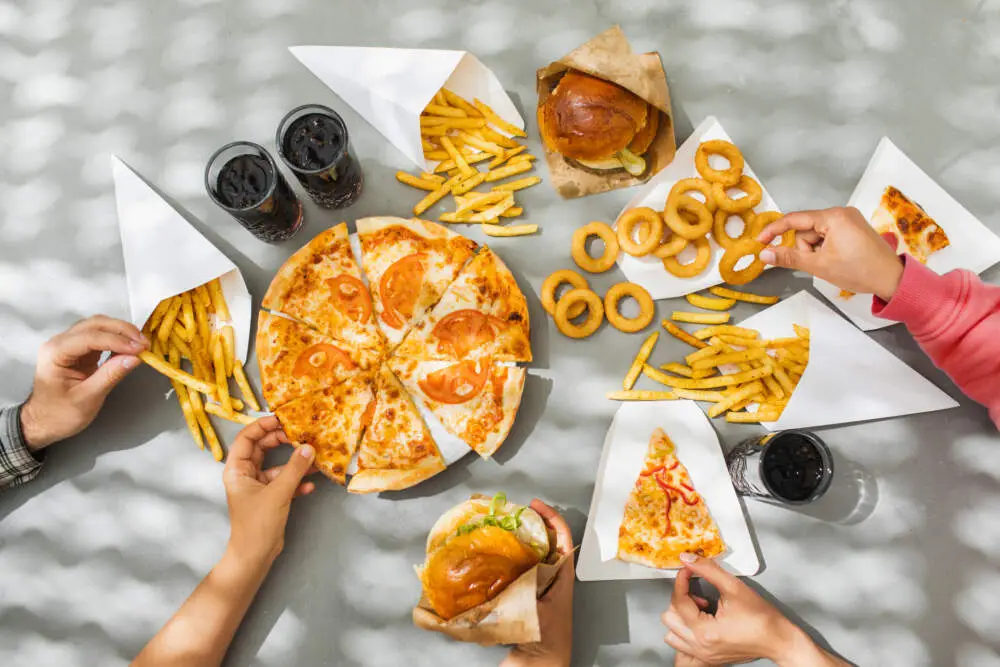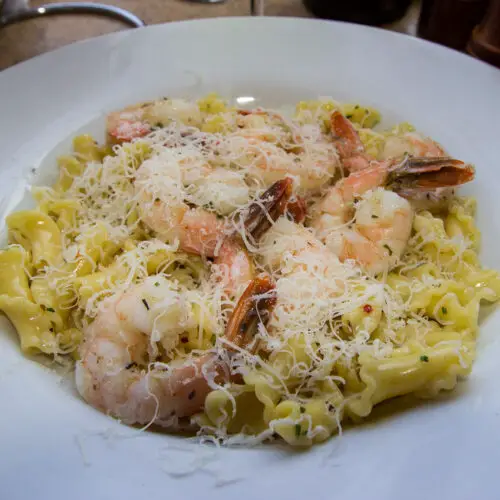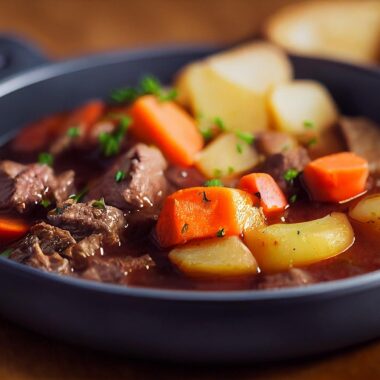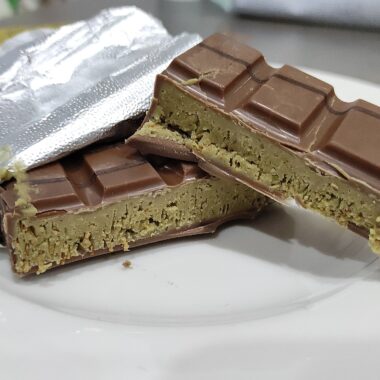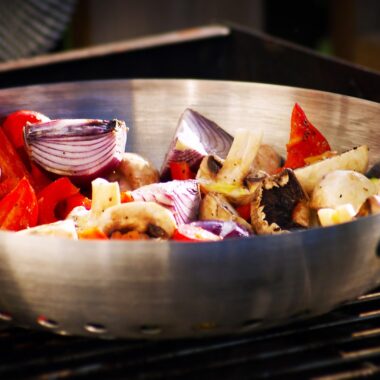Gaining muscle for football requires more than just lifting weights and training hard. Proper nutrition plays a crucial role in muscle growth, recovery, and performance. Football is a physically demanding sport that requires strength, speed, endurance, and power. To maximize gains, you need a well-structured meal plan that provides the right balance of protein, carbohydrates, healthy fats, and micronutrients.
This article provides a in-depth guide on the best football meal plan to gain muscle—covering essential nutrients, meal timing, food choices, and sample meal plans to help you build strength and size effectively.
The Importance of Nutrition for Football Players
Football players engage in intense training sessions that involve weightlifting, speed drills, agility work, and endurance conditioning. To optimize performance and build muscle efficiently, proper nutrition is essential for:
- Muscle Growth: Protein supports muscle repair and growth after tough workouts.
- Energy Production: Carbohydrates fuel training and recovery.
- Injury Prevention: A well-balanced diet strengthens the body and reduces injury risk.
- Endurance and Stamina: Proper hydration and nutrient intake help sustain high-intensity play.
- Faster Recovery: Nutrients like protein, omega-3s, and antioxidants aid in quicker recovery.
If you don’t consume enough calories and nutrients, muscle growth will be limited, recovery will be slower, and performance will decline.
Key Nutrients for Muscle Growth
To effectively build muscle, football players must focus on macronutrients (protein, carbohydrates, and fats) and micronutrients (vitamins and minerals). Below is a breakdown of each:
1. Protein: The Building Block of Muscle
Protein is essential for muscle repair and growth. Aim for 1.2–2.2 grams of protein per kilogram of body weight. Football players should consume protein from high-quality sources, such as:
- Lean meats: Chicken breast, turkey, lean beef
- Fish: Salmon, tuna, cod
- Eggs: Whole eggs and egg whites
- Dairy: Greek yogurt, cottage cheese, milk
- Plant-based sources: Lentils, beans, quinoa, tofu, tempeh
- Protein supplements: Whey protein, casein protein, or plant-based protein powders
2. Carbohydrates: Fuel for Performance
Carbohydrates provide the energy needed for intense training sessions. They help replenish glycogen stores and prevent muscle breakdown. Aim for 4–6 grams of carbohydrates per kilogram of body weight. Great carbohydrate sources include:
- Complex carbs (slow-digesting): Brown rice, quinoa, whole wheat bread, oats, sweet potatoes, lentils
- Simple carbs (fast-digesting): Bananas, honey, white rice, sports drinks (ideal post-workout)
- Fibrous vegetables: Broccoli, spinach, kale, carrots, bell peppers
3. Healthy Fats: Essential for Hormone Production
Healthy fats play a role in hormonal balance, joint health, and inflammation reduction. They also provide long-lasting energy. Football players should get 20–30% of their daily calories from fats. Good sources include:
- Nuts and seeds: Almonds, walnuts, chia seeds, flaxseeds
- Healthy oils: Olive oil, avocado oil, coconut oil
- Fatty fish: Salmon, sardines, mackerel
- Dairy: Whole milk, cheese, butter
4. Hydration: The Overlooked Key to Performance
Water is critical for muscle function, recovery, and endurance. Dehydration leads to fatigue, cramps, and decreased performance. Football players should drink at least 3–4 liters of water daily, more if training in hot conditions. Include electrolytes (sodium, potassium, magnesium) from coconut water, sports drinks, or electrolyte tablets.
Football Meal Timing for Muscle Gain
When you eat is just as important as what you eat. Proper meal timing ensures muscle growth, optimal recovery, and peak performance.
1. Pre-Workout Meal (60–90 minutes before training)
The goal is to fuel your workout with carbs for energy and protein for muscle protection.
- Example: Grilled chicken with brown rice and steamed broccoli
- Alternative: Oatmeal with banana and whey protein
2. Post-Workout Meal (30–60 minutes after training)
This is the most important meal for muscle recovery and growth. A combination of fast-digesting protein and carbs is ideal.
- Example: Protein shake with banana and peanut butter
- Alternative: Grilled salmon with white rice and asparagus
3. Breakfast: The Foundation of Your Day
A high-protein, high-carb breakfast kickstarts metabolism and provides energy.
- Example: Scrambled eggs, whole wheat toast, avocado, and Greek yogurt with berries
4. Lunch: Muscle-Building Midday Fuel
A balanced lunch ensures sustained energy and muscle growth.
- Example: Lean steak with quinoa, sautéed spinach, and mixed nuts
5. Dinner: Recovery and Growth
A protein-rich, moderate-carb meal helps muscles repair overnight.
- Example: Baked chicken breast with sweet potatoes and roasted vegetables
6. Snacks: Boosting Calories & Nutrients
Football players need frequent meals to meet high calorie demands.
- Examples: Nuts and dried fruit, protein bars, cottage cheese with honey, peanut butter toast
Football Meal Plan to Gain Muscle (4,000 Calories)
Here’s a high-calorie, high-protein meal plan designed to help football players build muscle.
Meal 1: Breakfast
- 4 scrambled eggs
- 2 slices whole wheat toast with almond butter
- 1 banana
- 1 cup Greek yogurt with honey and granola
- 500ml water
Meal 2: Pre-Workout Snack
- 1 protein shake (whey protein + milk)
- 1 cup oats with cinnamon
- Handful of almonds
Meal 3: Post-Workout Meal
- Grilled chicken (200g)
- White rice (1.5 cups)
- Steamed broccoli
- 1 apple
- 500ml water
Meal 4: Lunch
- 1 lean steak (200g)
- 1 cup quinoa
- Grilled asparagus
- 1 tbsp olive oil dressing
Meal 5: Afternoon Snack
- Peanut butter toast (2 slices whole wheat bread)
- 1 protein bar
- 1 cup mixed nuts
Meal 6: Dinner
- Baked salmon (200g)
- Sweet potato (1 large)
- Roasted Brussels sprouts
- 1 cup mixed berries
Meal 7: Evening Snack
- Cottage cheese (1 cup)
- Handful of walnuts
- Dark chocolate (80% cocoa)
This plan provides around 4,000 calories, 250–300g protein, 400–450g carbs, and 100–120g fat, ensuring optimal muscle gain.
Additional Tips for Muscle Gain
1. Track Your Calories & Macros
Use apps like MyFitnessPal to ensure you’re eating enough calories to gain muscle.
2. Adjust Your Diet Based on Training Intensity
- In-season: Slightly lower calories, more recovery foods.
- Off-season: Higher calorie intake for muscle growth.
3. Prioritize Sleep & Recovery
Muscles grow when you rest. Aim for 7–9 hours of quality sleep per night.
4. Supplement Wisely
- Whey Protein: Fast muscle recovery.
- Creatine Monohydrate: Increases strength and endurance.
- Omega-3s: Reduces inflammation.
- Vitamin D & Magnesium: Supports energy and recovery.
Final Thoughts
A well-structured football meal plan tailored for muscle gain is essential for optimal performance, recovery, and strength development. Consistency, proper meal timing, and eating nutrient-dense foods will ensure steady muscle growth and peak performance on the field.
By following this meal plan and nutrition strategies, football players can maximize muscle gain, recover faster, and perform at their best throughout the season. 🏈💪
Would you like a customized meal plan based on your weight, age, and training schedule? Let me know! 🚀
Scientific & Nutritional References:
- American College of Sports Medicine (ACSM) – Nutrition and Athletic Performance
- Thomas, D. T., Erdman, K. A., & Burke, L. M. (2016). Position of the Academy of Nutrition and Dietetics, Dietitians of Canada, and the American College of Sports Medicine: Nutrition and Athletic Performance. Journal of the Academy of Nutrition and Dietetics, 116(3), 501-528.
- Link
- International Society of Sports Nutrition (ISSN) – Protein & Muscle Building
- Jäger, R., Kerksick, C. M., Campbell, B. I., Cribb, P. J., Wells, S. D., Skwiat, T. M., & Purpura, M. (2017). International Society of Sports Nutrition Position Stand: Protein and Exercise. Journal of the International Society of Sports Nutrition, 14(20).
- Link
- National Strength and Conditioning Association (NSCA) – Sports Performance & Recovery
- Antonio, J., Ellerbroek, A., Silver, T., Vargas, L., Tamayo, A., Buehn, R., & Peacock, C. (2016). A high protein diet (≥3.0 g/kg/d) combined with a heavy resistance training program improves body composition in healthy trained men and women – a follow-up investigation. Journal of the International Society of Sports Nutrition, 13(39).
- Link
- Mayo Clinic – Carbohydrates & Sports Performance
- Mayo Clinic Staff. (2022). Nutrition and athletic performance: The right fuel for physical activity. Mayo Clinic Health System.
- Link
- Harvard T.H. Chan School of Public Health – Healthy Fats for Performance
- Harvard School of Public Health. (2021). Types of Dietary Fat and Their Effects on Health.
- Link
- Sports Dietitians Australia (SDA) – Hydration & Electrolytes in Athletes
- Sports Dietitians Australia. (2023). Fluid and Hydration in Sports Nutrition.
- Link
- Creatine and Performance Enhancement – National Institutes of Health (NIH)
- Kreider, R. B., Kalman, D. S., Antonio, J., Ziegenfuss, T. N., Wildman, R., Collins, R., & Lopez, H. (2017). International Society of Sports Nutrition Position Stand: Safety and Efficacy of Creatine Supplementation in Exercise, Sport, and Medicine. Journal of the International Society of Sports Nutrition, 14(18).
- Link
- USDA Dietary Guidelines – Macronutrient Recommendations
- U.S. Department of Agriculture. (2020-2025). Dietary Guidelines for Americans, 9th Edition.
- Link
These references provide scientifically backed evidence on sports nutrition, muscle gain, protein intake, hydration, and dietary strategies for athletes. If you need further in-depth research or specific citations, let me know! 😊
